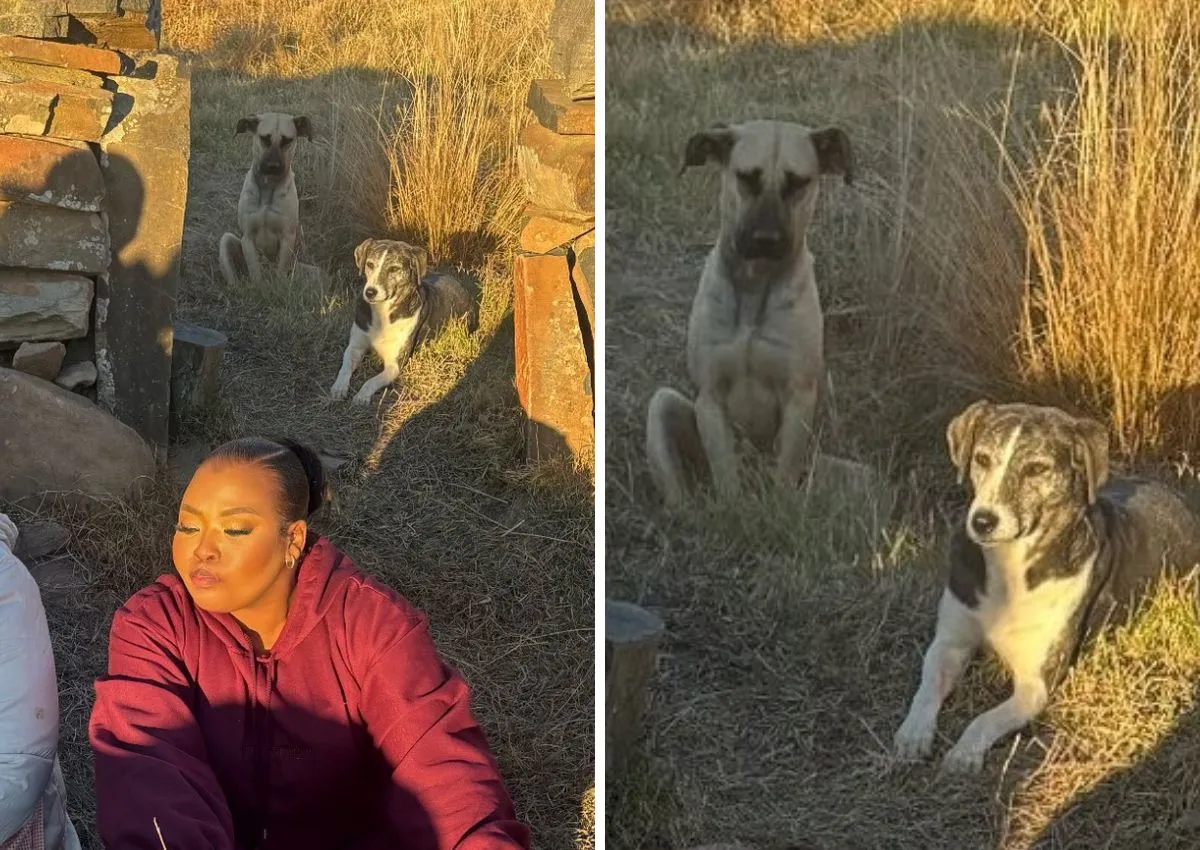
SPCA Addresses Concerns Over Dogs Featured in Anele Mdoda’s Post
In response to public concern over a social media post by radio and TV personality Anele Mdoda shared during a family gathering in April, the SPCA addressed the image of two dogs seen lurking in the background. Following recent animal cruelty charges against content creator Sasha Tshiamo related to an emaciated dog named Bobby, who has since been rescued, users on X expressed their worries about the dogs’ condition. While the SPCA confirmed the dogs appeared healthy, this incident has ignited conversations about animal welfare, cultural norms, and community standards regarding proper attire at familial events.
SPCA Responds to Concerns Over Dogs in Anele Mdoda’s Post
The SPCA has addressed concerns after Anele Mdoda posted images featuring two dogs during a family gathering, stating the animals appeared to be in good condition and not in distress.
Many social media users tagged the SPCA, prompting a response. The SPCA thanked the public for the “concern” while encouraging anyone with further questions to reach out directly.
This incident comes amid recent animal cruelty allegations against content creator Sasha Tshiamo, highlighting ongoing discussions surrounding animal welfare and public responsibility.
Cultural Norms and Social Media Criticism of Anele Mdoda
In addition to the dog concerns, users criticized Anele Mdoda’s casual attire during a traditional family gathering, which sparked another wave of conversation on cultural expectations.
Anele defended her clothing choice, claiming comfort is paramount at home and stating, “This is not up for discussion,” emphasizing personal freedom in cultural contexts.
This dual controversy surrounding animal welfare and cultural attire norms illustrates the complex interaction between social media scrutiny and cultural practices in South Africa.
The recent uproar surrounding Anele Mdoda’s post highlights the complexities of cultural expressions and social media scrutiny. While some criticized her choice of attire, others voiced genuine concerns for the dogs’ welfare, showcasing the need for a balanced dialogue on community standards.
This incident reflects the evolving discourse on animal rights and cultural norms, reminding us how digital platforms amplify concerns and critiques. Anele’s defense underscores the importance of personal and cultural authenticity amidst public expectations.
Ultimately, while opinions varied, the situation serves as a platform for broader conversations about animal welfare and the intersection of cultural identity and social responsibility, encouraging a more empathetic understanding among all parties involved.
Let us know your thoughts by leaving a comment below!
Don’t forget to share this article with others who may find it helpful.




